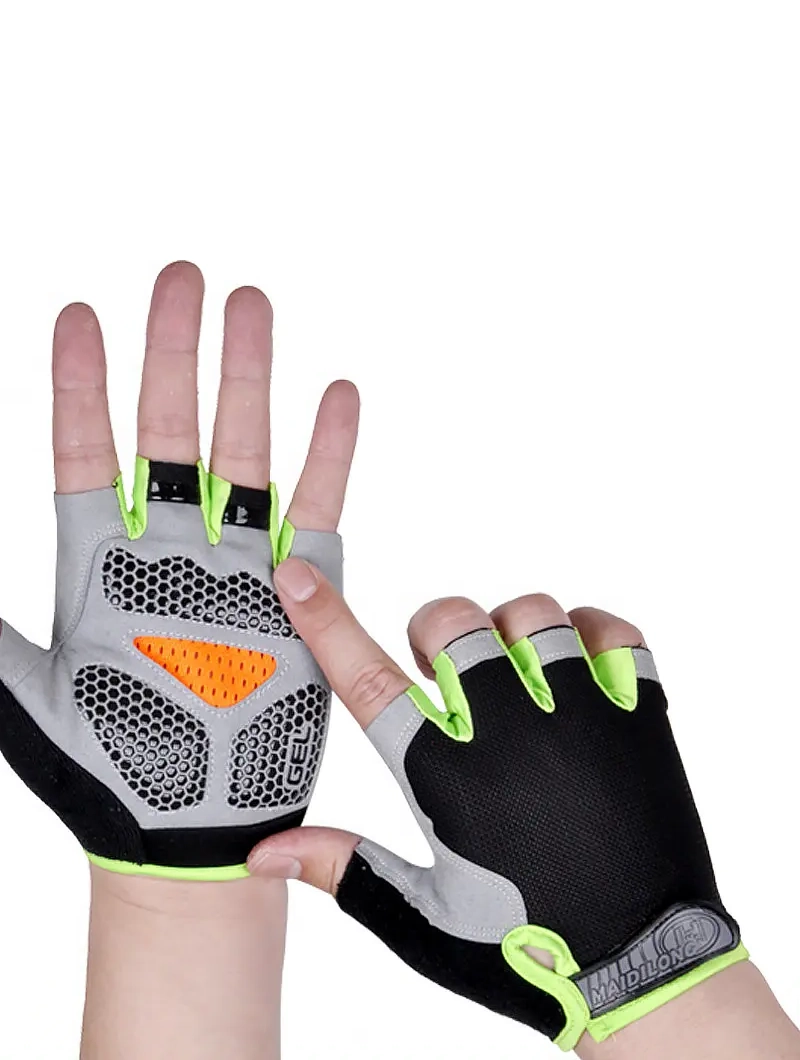A Beginner’s Camping Guide to a Successful Outdoor Adventure
Are you ready for an outdoor adventure? Camping is a great way to explore the beauty of nature and enjoy some quality time with friends and family. However, planning your first camping trip can be daunting, especially if you have never done it before. In this Beginner’s Camping Guide to a Successful Outdoor Adventure, we will provide you with all the information you need to plan a successful camping trip.
Understanding Camping

Before you start planning your camping trip, it is essential to understand what camping is all about. Camping is an outdoor activity that involves spending one or more nights in a tent or other temporary shelter. It is a great way to disconnect from the daily grind and enjoy the peace and tranquility of nature. In this camping guide, we will cover everything you need to know to plan your first camping trip, including choosing the right campsite, essential camping gear, planning your activities, creating a camping trip checklist, and safety measures and emergency preparedness.
Key Takeaways
- Understanding the basics of camping is crucial before planning your first trip.
- Choosing the right campsite and essential gear are key to a successful camping trip.
- Planning your activities, creating a checklist, and being prepared for emergencies are important steps to ensure a safe and enjoyable camping experience.
Understanding Camping
Engaging in camping offers a wonderful opportunity to immerse oneself in the beauty of nature, allowing a much-needed escape from the fast-paced demands of daily routines. It provides a unique chance to detach from the digital world and reestablish a deep connection with the natural environment. Whether you’re planning a weekend trip or a longer adventure, camping can be a fun and rewarding experience for people of all ages.
Before you go camping, it’s important to understand what you’re getting into. Camping requires some preparation and planning, but it doesn’t have to be complicated. Here are some things to keep in mind:
- Choose the right campsite: When selecting a campsite, consider the facilities available, the terrain, and the weather conditions. Look for a level spot to pitch your tent, and make sure you have access to clean water and a restroom.
- Pack the essentials: Your camping gear will depend on the type of camping you’re doing, but some essentials include a tent, sleeping bags, a camping stove, and a cooler. Make sure you bring enough food and water for your trip, and pack appropriate clothing for the weather.
- Be prepared for emergencies: Accidents can happen, so it’s important to be prepared. Bring a first-aid kit, a map and compass, and a flashlight with extra batteries. Make sure someone knows where you’re going and when you’ll be back.
- Respect nature: When camping, it’s important to leave the campsite better than you found it. Follow the “leave no trace” principles, and pack out all trash and litter. Respect wildlife and their habitats, and don’t disturb plants or animals.
By understanding these basic principles, you’ll be better prepared for your first camping trip. With a little planning and preparation, you can have a fun and memorable outdoor adventure.
Choosing the Right Campsite

When planning your first camping trip, choosing the right campsite is crucial to ensure a comfortable and enjoyable experience. Here are some tips to help you identify suitable locations and prepare your campsite:
Identifying Suitable Locations
Before you start looking for a campsite, it is important to consider the following factors:
- Proximity to water: Make sure the campsite is located near a water source, such as a river or lake, to have easy access to water for drinking, cooking, and cleaning.
- Accessibility: Choose a campsite that is easily accessible by car or foot, depending on your mode of transportation.
- Terrain: Look for a flat and level campsite to ensure a comfortable sleeping surface and prevent any accidents or injuries.
- Vegetation: Avoid camping under tall trees or dead branches that could fall and cause harm. Choose a campsite with low vegetation and clear the area of any debris or obstacles before setting up your tent.
- Weather: Check the weather forecast before choosing a campsite and avoid areas prone to flooding, strong winds, or extreme temperatures.
Campsite Preparation
Once you have identified a suitable location, it’s time to prepare your campsite. Here are a few tips that will help you set up your campsite:
- Clear the area: Remove any rocks, sticks, or debris from the ground to create a flat and level surface for your tent.
- Pitch your tent: Set up your tent on the cleared area, making sure it is taut and secure. Use stakes and guy lines to anchor your tent in case of strong winds.
- Set up your kitchen area: Choose a spot near your tent to set up your cooking area. Use a camping stove or campfire to cook your meals, and make sure to follow fire safety guidelines.
- Store your food: Keep your food in airtight containers and store them away from your sleeping area to avoid attracting wildlife.
- Dispose of waste: Bring trash bags and dispose of your waste properly. Do not leave any trash or food scraps in the campsite.
By following these tips, you can choose the right campsite and prepare it for a comfortable and enjoyable camping experience.
Essential Camping Gear for Beginners

When planning your first camping trip, it’s important to have the right gear to make your trip comfortable and enjoyable. Here are some essential items to consider:
Choosing the Right Tent
Choosing a good tent is a must for a successful camping trip. When choosing a tent, consider the size of your group, the weather conditions you’ll be camping in, and the type of camping you’ll be doing. Look for a tent that is easy to set up and has good ventilation to keep you cool in warm weather and dry in wet weather. We recommend practicing setting up your tent at home before your trip.
Sleeping Arrangements
Getting a good night’s sleep is crucial for enjoying your camping trip. Make sure you have a comfortable sleeping pad or air mattress to cushion you from the hard ground. A warm sleeping bag is also essential, especially if you’ll be camping in colder weather. Choose a sleeping bag tailored to handle the coldest temperatures you anticipate facing during your outdoor adventures.
Cooking Equipment
Cooking over a campfire or portable stove is a fun and rewarding part of camping. Make sure you have the right equipment to cook your meals. A good camping stove, cookware, utensils, and a cooler to keep your food fresh are all essential. Don’t forget to bring plenty of water and a way to purify it if necessary.
Clothing and Footwear
Dressing appropriately for the weather and terrain is important for staying comfortable and safe on your camping trip. Pack layers of clothing that can be easily put on or take of as the temperature changes. Good quality hiking boots or shoes with good traction are essential for exploring the outdoors. Don’t forget to take a hat and your cool shades to protect yourself from the sun.
By packing these essential items, you’ll be well on your way to a successful and enjoyable camping trip.
Planning Your Camping Activities

When planning your camping trip, it’s important to consider the activities that you’ll be doing during your stay. Here are some popular camping activities that you might want to include in your itinerary:
Hiking and Exploration
Hiking is a great way to explore the natural beauty of your camping destination. Before you set out on your hike, make sure to research the trails in the area and choose one that is appropriate for your skill level. Bring plenty of water and snacks, and wear comfortable shoes and clothing. Don’t forget to bring a map and compass, and let someone know where you’re going and when you expect to return.
Fishing and Hunting
Fishing and hunting are popular camping activities that can provide a delicious meal for your group. Make sure to research the fishing and hunting regulations in the area and obtain any necessary permits. Bring your own equipment, or rent it from a local outfitter. Make sure to properly clean and cook any fish or game that you catch.
Campfire and Cooking
Cooking over an open flame stands out as one of the best parts of the camping experience. Bring a portable grill or camp stove, and make sure to pack plenty of food and cooking supplies. Don’t forget to bring utensils, plates, and cups, and make sure to properly store any food to prevent attracting wildlife. Gather around the campfire in the evening, and enjoy a delicious meal with your fellow campers.
Overall, planning your camping activities is an important part of ensuring a successful outdoor adventure. By researching the area and choosing activities that are appropriate for your group, you can create a memorable and enjoyable camping experience.
Creating a Camping Trip Checklist

When planning your first camping trip, it’s important to create a checklist of items you’ll need. This will help ensure that you don’t forget anything important and that you’re well-prepared for your outdoor adventure. Here are some tips for creating a camping trip checklist:
Start with the Basics
Begin by making a list of the basic items you’ll need for your camping trip. This might include a tent, sleeping bags, sleeping pads, and a cooler for food and drinks. You’ll also want to bring along a camping stove or grill, as well as cooking utensils, plates, and utensils.
Consider the Location and Weather
Next, think about the location and weather conditions you’ll be camping in. If you’ll be camping in a colder climate, you’ll need to bring along warm clothing, such as jackets, hats, and gloves. If you’ll be camping in a warmer climate, you’ll want to bring along lightweight clothing and plenty of sunscreen.
Don’t Forget the Essentials
There are certain items that are essential for any camping trip, such as a first-aid kit, insect repellent, and a flashlight or lantern. You’ll also want to bring along a map and compass, as well as a whistle in case of an emergency.
Pack Efficiently
When packing for your camping trip, it’s important to pack efficiently. This means packing items in a way that makes them easy to access and use. Consider using packing cubes or compression bags to help save space in your backpack or car.
Camping Guide Checklist
Before you head out on your camping trip, be sure to check and double-check your checklist. Make sure you haven’t forgotten anything important and that all of your gear is in good working order.
Creating a camping trip checklist might seem overwhelming at first, but it’s an important step in ensuring that your outdoor adventure is a success. By starting with the basics, considering the location and weather, packing efficiently, and double-checking your list, you’ll be well-prepared for your first camping trip.
Here is a checklist that will set you on the right track.
Safety Measures and Emergency Preparedness

When going on a camping trip, it is important to take safety measures and be prepared for emergencies. Here are a few tips to help ensure you have a safe and enjoyable camping experience:
Before the Trip
- Research the area you will be camping in and be aware of any potential hazards such as wildlife or natural disasters.
- Check the weather forecast and pack accordingly. Bring appropriate clothing and gear for the conditions.
- Make a checklist of essential items to bring, including a first-aid kit, a map of the area, and a flashlight with extra batteries.
- Let someone know where you will be camping and when you plan to return.
During the Trip
- Set up camp in a safe location away from hazards such as cliffs, unstable trees, or bodies of water.
- Keep your campsite clean and free of food scraps to avoid attracting wildlife.
- Follow all fire regulations and never leave a fire unattended.
- Stay hydrated and avoid overexertion in hot weather.
- Be prepared for emergencies by knowing the location of the nearest hospital or emergency services.
In Case of Emergency
- Stay calm and assess the situation.
- If someone should experience an injury, provide first aid and seek medical attention if necessary.
- If lost, stay in one place and signal for help using a whistle or mirror.
- In case of a natural disaster, follow all emergency procedures and evacuate if necessary.
By following these safety measures and being prepared for emergencies, we can ensure a successful and enjoyable camping trip.
Conclusion and Final Thoughts
Camping provides a marvelous opportunity to forge a deep connection with the natural world while relishing the vast beauty of the great outdoors. We hope that this beginner’s guide has given you the confidence and knowledge you need to plan your first camping trip. Remember, the key to a great and memorable camping trip is preparation. Take the time to research your destination, pack the right gear, and plan your meals ahead of time.
Don’t be afraid to ask for help or advice from experienced campers. Joining a camping group or community can be a great way to learn from others and make new friends who share your love of the outdoors.
Before you head out on your first camping trip, make sure you have the right equipment and gear. Consider renting or borrowing gear if you’re not ready to invest in your own equipment just yet.
Finally, remember to be respectful of the environment and leave no trace behind. Follow the principles of Leave No Trace to minimize your impact on the environment and ensure that future generations can enjoy the same natural beauty that we do.
We wish you the best of luck on your first camping adventure!
Frequently Asked Questions
What basic equipment do I need for my first camping trip?
For your first camping trip, you’ll need some basic equipment to ensure a comfortable and safe experience. A tent, sleeping bags, and sleeping pads are essential. You’ll also need a camping stove, cookware, and utensils for preparing and cooking food. A cooler with ice is necessary for keeping food and drinks cold. Don’t forget to bring a headlamp or flashlight, a first aid kit, and insect repellent.
Where are some good camping spots for beginners?
There are many great camping spots for beginners. National and state parks offer a wide range of camping options, from primitive campsites to full-service RV sites. KOA campgrounds and UKC, are also a popular choice for beginners. Research camping spots online or ask for recommendations from friends or family.
What are some tent camping tips and tricks?
When setting up your tent, make sure to choose a level and dry spot. Use a tarp or footprint to protect the bottom of your tent from rocks and sticks. Keep your tent organized by using storage pockets and gear lofts. To stay warm at night, wear warm clothing and use a sleeping bag rated for the temperature of the area. Don’t forget to stake down your tent and guy lines in case of wind or rain.
What is the number one rule of camping?
The number one rule of camping is to leave no trace. This means packing out all trash and leaving the campsite in the same condition as you found it. Always respect wildlife and their habitats by keeping a safe distance and not feeding them. Follow fire safety rules and always extinguish fires completely before leaving the campsite.
What do I need to pack for a successful camping trip?
In addition to basic camping equipment, you’ll need to pack food, water, and clothing appropriate for the weather and activities planned. Don’t forget to bring sunscreen, a hat, and sunglasses for sun protection. Bring a map or GPS device to navigate the area. A book or deck of cards is also a good idea for downtime entertainment.
What should I expect on my first camping trip?
Expect to be surrounded by nature and away from the hustle and bustle of daily life. You may encounter wildlife, such as birds, squirrels, or deer. Be prepared for weather changes and pack accordingly. Don’t worry if things don’t go according to plan – camping is all about embracing the unexpected and enjoying the journey.






